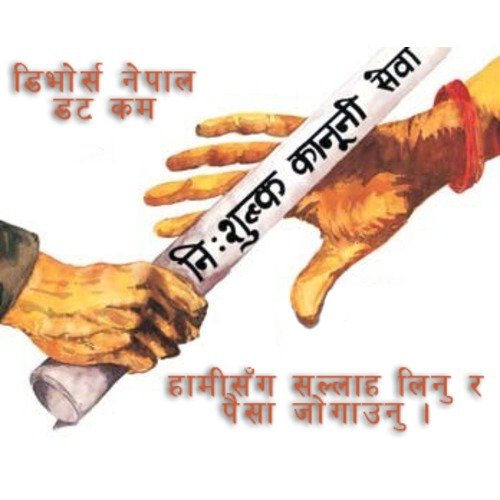Best Domestic Violence Lawyers in Hetauda
Share your needs with us, get contacted by law firms.
Free. Takes 2 min.
Free Guide to Hiring a Family Lawyer
List of the best lawyers in Hetauda, Nepal
About Domestic Violence Law in Hetauda, Nepal
Domestic violence is recognized as a serious issue in Nepal, including Hetauda. The Domestic Violence (Crime and Punishment) Act, 2066 is the prime law applicable to protect victims and punish perpetrators. This law categorizes domestic violence as physical, mental, sexual, and economic harm caused within the family. It includes, among other things, recurring insults, attempted harm, and creating physical or mental torture by way of any kinds of harassment.
Why You May Need a Lawyer
Understanding and navigating the proceedings of domestic violence law may be overwhelming for victims. This may include filing complaints, communicating with various government agencies, understanding your rights, proving abuse, seeking protection or restraining orders and getting legal divorces. An experienced lawyer can provide you with much-needed expert legal advice, help you understand your rights, guide you through legal proceedings, and argue your case on your behalf.
Local Laws Overview
The domestic violence law in Hetauda, like the rest of Nepal, offers various protections for victims. It introduces three types of remedies available for a victim: (a) Interim remedy, (b) Health remedy, and (c) Compensation remedy. You may approach the police or a District Court for seeking these remedies under the law. More importantly, it is illegal for anyone to force you to leave your house due to being subjected to domestic violence. It also instructs the court to make necessary orders to protect the victim.
Frequently Asked Questions
1. What is considered domestic violence in Hetauda, Nepal?
Any form of physical, mental, sexual, and economic harm inflicted by a family member is considered domestic violence under Nepalese law. This includes inflicting physical pain, recurring insults, continual threat, and denial of economic resources.
2. Where should I report domestic violence?
Victims can approach the local police or file a complaint at a District Court.
3. What protections does the law provide for victims of domestic violence?
The law provides numerous protections like issuing a protection order which may include prohibition of offender’s contact, removal of offender from shared household among other things, seeking compensation, and ordering the provision of free medical treatment.
4. What is the role of police in cases of domestic violence?
The police have a key role in handling, investigating, and helping to prosecute the cases of domestic violence. They also provide immediate protection to victims and can help the victim in filing a case at court.
5. Can men also file a complaint in case of domestic violence?
Yes, the law doesn't discriminate on the basis of gender. Any victim, irrespective of their gender, can file a complaint in case of domestic violence.
Additional Resources
Many organizations work in the field of tackling domestic violence in Hetauda and Nepal. This includes governmental bodies such as the National Women Commission and National Human Rights Commission. Non-governmental bodies like Maiti Nepal and Women Rehabilitation Center (WOREC) can also provide crucial support.
Next Steps
If you or someone you know is a victim of domestic violence, contact your local authorities immediately. You can also consult a local lawyer to understand your rights and the legal proceedings. There are numerous organizations that also provide support in terms of counseling, rehabilitation, and advocacy.
Lawzana helps you find the best lawyers and law firms in Hetauda through a curated and pre-screened list of qualified legal professionals. Our platform offers rankings and detailed profiles of attorneys and law firms, allowing you to compare based on practice areas, including Domestic Violence, experience, and client feedback.
Each profile includes a description of the firm's areas of practice, client reviews, team members and partners, year of establishment, spoken languages, office locations, contact information, social media presence, and any published articles or resources. Most firms on our platform speak English and are experienced in both local and international legal matters.
Get a quote from top-rated law firms in Hetauda, Nepal — quickly, securely, and without unnecessary hassle.
Disclaimer:
The information provided on this page is for general informational purposes only and does not constitute legal advice. While we strive to ensure the accuracy and relevance of the content, legal information may change over time, and interpretations of the law can vary. You should always consult with a qualified legal professional for advice specific to your situation.
We disclaim all liability for actions taken or not taken based on the content of this page. If you believe any information is incorrect or outdated, please contact us, and we will review and update it where appropriate.








